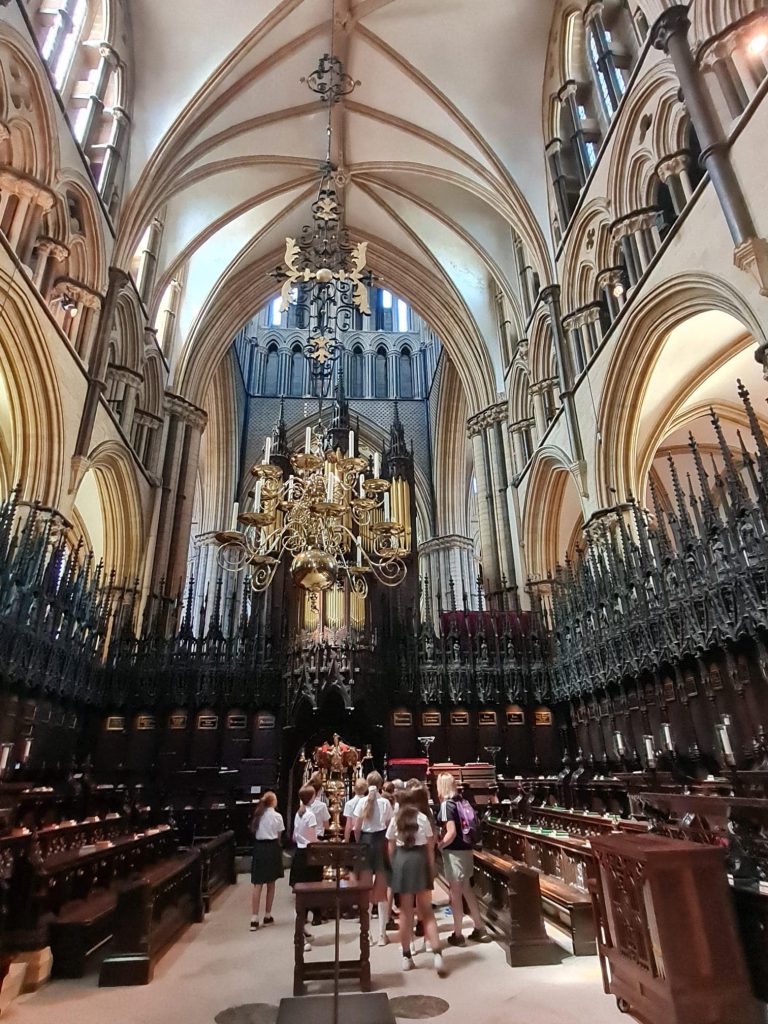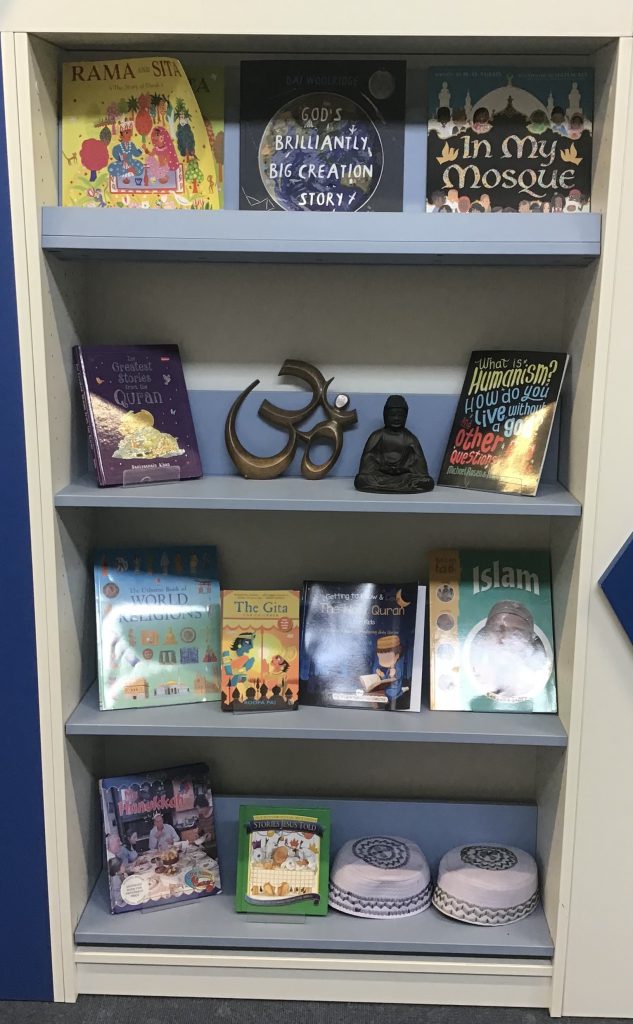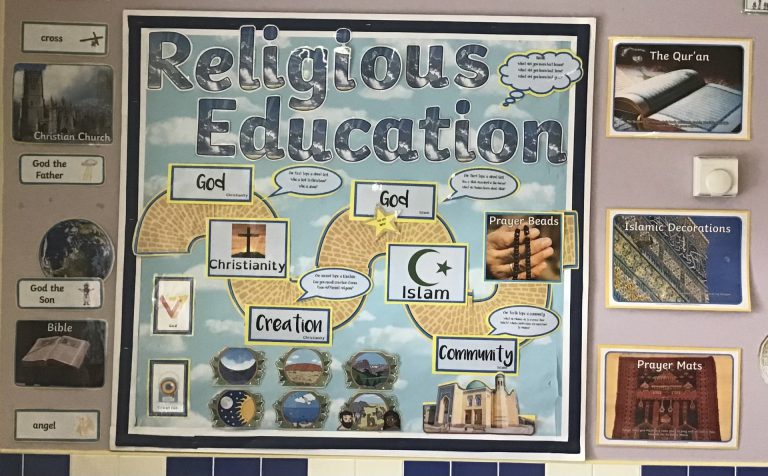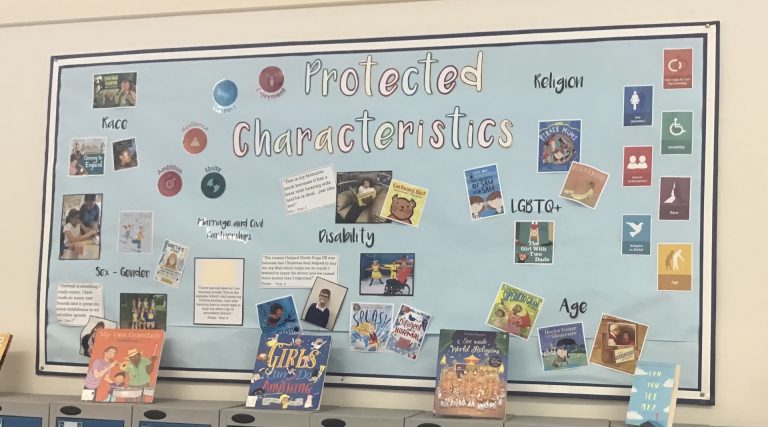
Our curriculum has been carefully and coherently planned and sequenced to link with our Character Education curriculum, which prepares pupils for life after Witham St Hughs Academy. This approach ensures high expectations for all pupils regardless of disadvantage or SEND need.
We believe Religious Education should equip pupils with knowledge beyond their own experiences and personal beliefs. In a local area, often lacking in diversity, it is essential that Religious Education that allows pupils to gain a deeper understanding of others’ faiths. Children will also compare religious beliefs to current society, and develop an understanding of what Atheism is.

Religious Education is taught in every year group for approximately one hour per week. These lessons are planned carefully using the Religious Education Framework. The curriculum allows for a child to progress from the foundation stage to Year Six and receive a varied and plentiful knowledge of Christianity, Hinduism, Islam and other world views such as Humanism.
The curriculum has been designed to provide teachers with many clear, precise learning targets and further questions for the teacher’s guidance and planning. For example, in the ‘Understanding Christianity’ topic, the learning targets progress year on year to ensure children are expanding upon and deepening their knowledge within this specific area.
Disciplinary and Substantive Knowledge
We believe that pupils need key substantive elements of essential knowledge to excel in Religious Education. This can be categorised into Understanding Christianity, Compulsory units and Additional units of knowledge. The ‘Understanding Christianity’ units we teach are: Incarnation, Salvation, Creation and God. The ‘Compulsory’ units of learning we teach are Islam and Hinduism and ‘Additional’ units, incorporate the world views, including Humanism.
In addition to this, children also need the disciplinary knowledge to understand how the substantive knowledge has been handled in different fields of enquiry over human history. As they progress through the Academy, these skills develop to allow Witham pupils to become tolerant, understanding and open-minded individuals. We do this by building confidence in specialised knowledge of Religious Education and developing specialised skills.
We aim for our pupils to become rich in religious literacy through a balanced Religious Education curriculum. We teach this through the three lenses: believing, living and thinking. Believing looks at where beliefs come from, how they have changed over time, how they are applied differently in different contexts and how they relate to each other. Thinking is about finding out how, and whether things make sense. It deals with questions of morality and ethics. It takes seriously questions about reality, knowledge and existence. Living explores the diverse ways in which people practise their beliefs. It engages with the impact of beliefs on individuals, communities and societies.
Witham St Hughs Academy has high aspirations for all pupils in Religious Education and therefore pupils are not solely assessed through their literacy ability. Teachers can assess Religious Education through retelling of stories, verbal discussions, role-play, debates, sequencing activities and many other practical experiences, such as taking the children outside. Teacher adaptation allows for all pupils to achieve and thrive.

Visitors and trips are woven thoughtfully into the curriculum to allow children to embed and experience new knowledge of the real world. Assemblies – with visitors where possible – are planned to further pupil’s knowledge of the religions and world views taught at Witham St Hughs Academy.

Religious Education learning is displayed in many different areas across the Academy. This includes on classroom displays, children’s Religious Education books, assemblies, visitors from religious places of worship in school and corridor displays including religious books.
Our Religious Education subject leaders are always seeking to work beyond Witham St Hughs Academy and as such have worked closely with the local advisor for Religious Education in Lincolnshire. This partnership has enabled our Academy to have the most up-to-date information, which has helped to carefully design our framework.
